Silence, Spontaneity and Saving Face
Insider Tips for Living in Tokyo
By Carrie Hurst
Published 10/17/2018 by Transitions Abroad
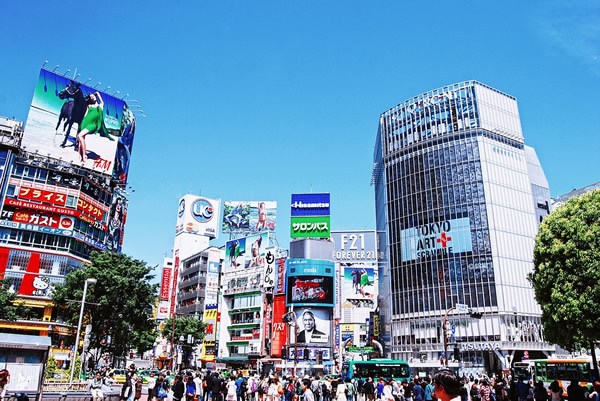 |
| Lively downtown Tokyo. |
The jet lag has long worn off. You've memorized your address and successfully nailed the commute to work. You've discovered the joys of convenience store fried chicken, and even worked out how to ask for extra spring onions at the local ramen shop. You may be nursing a hangover from your first karaoke all-nighter.
So what now?
Here are some tips to think about as you navigate the winding streets of Tokyo life.
Consider the "Wa"
The what? "Wa" refers to the concept of maintaining a sense of harmony or unity as a social group. The interests of the group are generally valued over personal interests in Japan. Showing consideration towards others is at the heart of Japanese society.
Such consideration for others extends to all aspects of life. Transport is no exception. Save your phone catch-ups for after you get off the train — stick to just texting on board. Speaking in a loud voice or behaving is an obnoxious way is considered selfish in a communal space such as a train. Personal space is valued, and great lengths are taken to avoid making physical contact. Rush hour trains are a notable exception — the mind will boggle at just how many suited and booted bodies can be crammed into a carriage.
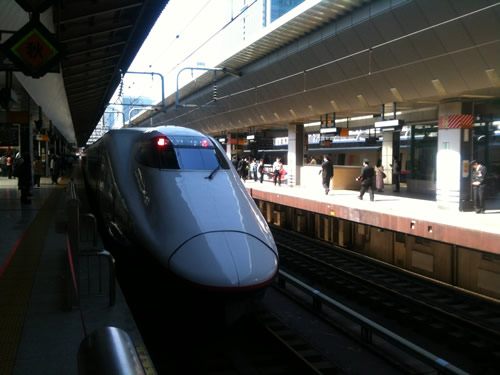 |
| A bullet train pulls into the station. |
You'll notice many people don't wear strong perfume or aftershave; this is no accident. To have strong body odor, whether perfume or otherwise, is also seen as inconsiderate to others. Think subtle hint of scent, not five spritzes of your favorite Dior.
Saving Face
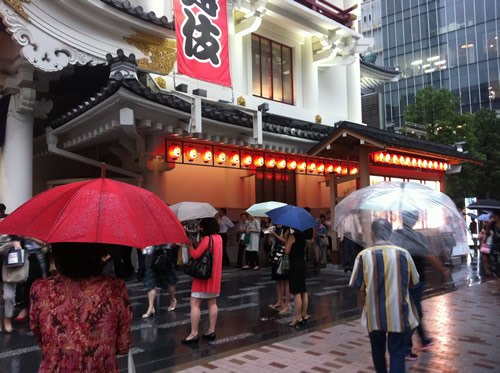 |
| People wait in the rain outside Kabukiza – one of the most famous theaters in Tokyo. |
"Face" is a layered concept — and not easy to define in a one-fits-all phrase. "Losing face" is the notion of losing the respect of others, or one's integrity/ honor being compromised. However, in Japanese culture "face" is inextricably linked to other people. It could mean preserving the honor of your family, the honor of the company or even your country.
So how does this manifest itself in everyday life?
Confrontation is typically avoided. Rather than openly disagreeing or refusing something, it is better to find a less direct or more discreet way to indicate your views or desires — in this way you can avoid embarrassing the other person. So if you don't feel like going for dinner, it's better to give an excuse (even if it's a white lie) than to flat-out refuse.
People don't tend to show negative emotions on their face or in any way — it pays to keep your cool no matter how frustrated you may feel. Japanese often smile/laugh more in uncomfortable situations — so it can be easy to misconstrue laughter. Silence is considered an acceptable response in many situations — read between the lines and try to be sensitive to subtle cues.
Just as great lengths will be taken to avoid losing face, "giving face" is also an important consideration. At times, it is better to complement or flatter someone else in front of others, building up their "image." At the same time, as modesty and humility are favored in Japan, people will often play down compliments sent their way and instead flatter others.
I witnessed one memorable situation from the window of a stationary train waiting at a platform. A businessman came pounding full speed down the concrete steps to the platform, tripped, and not too dissimilar to a character in a cartoon, rolled and bounced down the remainder of the ten or so steps. The man was surprisingly okay, but no one approached him to check. Only after 20 seconds or so did a couple tentatively walked over to ask. At the time my Western upbringing didn't allow me to comprehend the situation. Why didn't they care? Now that I've had the chance to discuss some of these situations with Japanese friends over time, I've developed a better understanding. Passers-by would have heightened embarrassment by approaching and drawing further attention to him — by turning a blind eye they helped him "save face."
However, one of the best and most rewarding ways to connect with people is, of course, to learn Japanese.
Communication in Japanese
 |
| Japanese character for "Luck." |
Can you speak Japanese? You will be asked this all the time, and it's a fair question!
The experience of living in Japan can become exponentially richer the more Japanese you know. Not a revolutionary concept, but one that is especially important in Japan. However you choose to learn, you must progress to feel the reward, and then your motivation to learn will grow. The reward may take the form of sharing small talk at a countryside bus stop, being able to ask the sushi chef about the history of the restaurant, or simply understanding the registration form at the local gym.
Study the language little and often — consistency is king. Then use it. I repeat, use it. Speak as much as you can. And don't take anything personally when it comes to feedback or reactions. Focus on communication, not that you are trying to "practice Japanese." After all, the whole point of learning a language for communicative purposes is to be able to connect and share with others. Japanese people will appreciate your efforts and seek to communicate rather than condemn grammar mistakes.
To accelerate your progress in Japanese, there are ample opportunities for designated "language practice." Try Meetup groups, language exchange websites, and chat apps for opportunities to practice. Team up with other foreign friends and have "Japanese only" coffee once a week
I highly recommend checking out the network of volunteer-run Japanese classes in Tokyo. Most wards offer classes and only ask for a minimal monthly fee to cover photocopying and other such expenses. There are also plenty of Japanese language schools where you can study part-time or full-time.
If you continue with your study to an Upper-Intermediate level, career opportunities will grow significantly in Tokyo. The most widely recognized exam is the JLPT (Japanese Language Proficiency Test), in which many companies require N2 or N1 level. That's not to say the qualifications are 100 % necessary to work in a Japanese-speaking environment, but without these qualifications you may have to find more creative ways to communicate your abilities when applying for work.
Learn to Give Back to the Community
Volunteering can be extremely rewarding, and an activity where you have a chance to give back to your Tokyo neighborhood. It can break down cultural barriers, and give you a chance to bond with local people who have a shared goal.
There are a number of charities aimed at supporting the foreign community in Japan, where speaking Japanese is not necessary. Certain positions do, understandably, require a level of Japanese. Information can be found at the local volunteer center (the local ward office can advise on the location). I volunteered in an elderly home for several years before moving. I treasure the experiences I had there and was privileged to meet some wonderful people. It also gave me a sense that I was contributing to the community, if only if a small way.
Tokyo is Expensive: Watch Your Money
Tokyo was deemed the third most expensive city to live in the world, according to a Cost of Living study by HR firm Mercer in June 2018. Space is at a premium, and many choose to live in "bed-towns" (commuter towns) which offer more affordable rent and good transport links into the city.
The convenience store is one place it is easy to waste money, especially when you first arrive. It's a cornucopia of snacks, drinks, magazines, toiletries, etc. Whether taking out lunch or picking up household goods on the way back from work — it's all too.convenient. Before you realize, you can develop some expensive habits and waste a lot of money there in the long term. Shopping regularly at cheap supermarkets can save you big bucks. Take the time to learn some simple recipes so that you can make the most of reasonably priced supermarket ingredients. Japanese rice lives up to its delicious reputation — buy yourself a rice cooker and make the most of having access to such great rice.
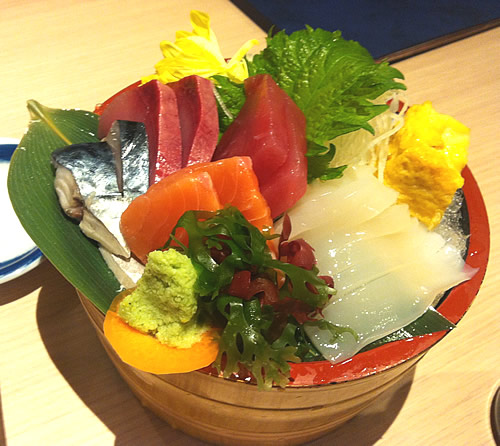 |
| A sashimi bowl. Tokyo is a foodie's dream. |
After the first 1 or 2 years, reality hits you hard in the form of city tax. For some, health insurance costs increase. Find alternatives to the pub-drinking-session-followed-by-karaoke combination that can empty your pockets before you know it. Gather together friends to go to daytime karaoke sessions (a fraction of the price of night sessions). Explore the stunning parks Tokyo and the surrounding area have to offer with picnics when the weather is good. Consider taking local buses sometimes, which can often work out cheaper. Some restaurants and pubs offer discounts with website coupons — save yourself a bit of cash by doing some research beforehand.
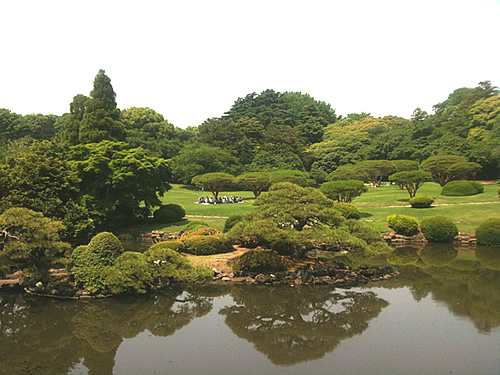 |
| The beautifully landscaped gardens of Shinjuku Gyoen park in Tokyo. |
Push Yourself and Build Skills
Life can be chaotic when you are adjusting to a completely new culture, job and trying to create a new network of friends. Give yourself time to adjust, but don't forget to keep investing in yourself and building your skills for the future. Whether it's learning a new sport, developing your technical skills, language-learning, or personal growth — there's something for everyone in Tokyo. For example, one way to build your public-speaking skills is to join a local Toastmasters group. Some groups converse only English or only in Japanese, while some are bilingual. It's a great way to build confidence while meeting new people.
Explore Japan Outside of Tokyo
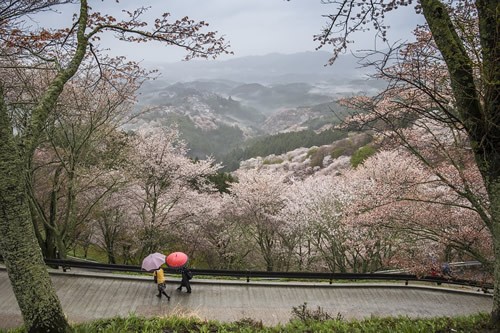 |
| Nara Prefecture. |
Japan is stunningly beautiful. From vast mountain ranges where you may hike and explore to peaceful villages surrounded by lush rice paddies to crystal blue waters and white sands in the South to ski resorts up North.
Try to be open to spontaneity and push yourself out of your comfort zone. Doing so doesn't have to involve long journeys or expensive trips. One of my favorite nights in Tokyo was the result of getting off at a random station on a random line and going to the first bar I saw. Seven hours and many plum-wine infused conversations later I had met a host of interesting people — among others an opera singer and a stuntman!
Look After Yourself
With all the cultural emphasis on thinking about other people, it can be easy to neglect yourself in Tokyo — remember to take care of yourself physically and mentally. Long journeys on packed rush-hour trains can take a toll, especially while working long hours. Consider traveling on a less crowded route, or by bus. It may be more expensive or take longer, but is far better for your well-being in the long term. Buying a bike also increases your transport options, and is a great way to keep fit — check out Craigslist or the monthly secondhand bicycles sales for budget deals. 24-hour gyms allow you to incorporate exercise into your routine easily but can be pricey. For a cheaper option, use the city ward gyms where you can pay per visit.
Invest time in meeting people and building a support network. Nothing is handed to you on a plate, but if make some effort, there are plenty of foreigners and Japanese alike who are also looking to broaden their social circles. Go to Meetup events, join Japanese classes, start a hobby. Concentrate on the individual interactions you have with people and don't get overwhelmed with the bigger picture.
Tokyo Does Not Disappoint
There is something for everyone in Tokyo — it's exciting, inspiring, and may throw you a curveball or three. As with anything, much is about attitude and your time in Tokyo is what you make of it.
Come with an open mind, a smile, a willingness to learn, and you won't be let down.
What does Tokyo have in store for you?
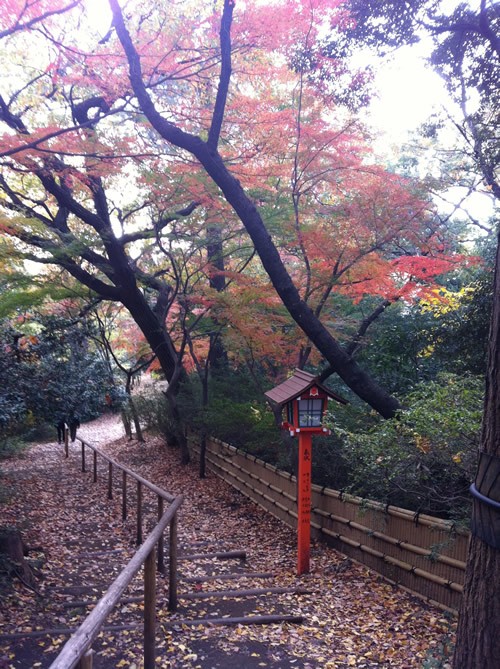 |
| Autumn leaves in another lovely park in Tokyo. |
Carrie Hurst is a freelance writer and English teacher living in Tokyo, Japan.
|
